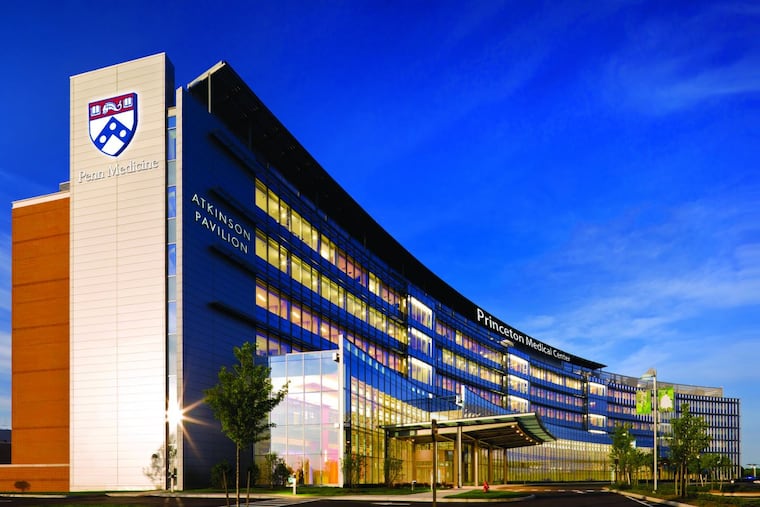Penn's hospitals now extend from Lancaster to Princeton
But Penn now faces a number of rising competitors, including Jefferson. UPMC and Highmark, hybrids of health systems and insurers, have worked their way east. And UPMC's joint venture with Tower Health to offer health insurance brings the Pittsburgh giant all the way into Philadelphia.

The University of Pennsylvania Health System has completed its acquisition of Princeton HealthCare System, the two nonprofit health systems said Tuesday.
The deal gives Penn about $7 billion in annual revenue and strengthens ties that Penn already has to the Princeton area, said Ralph Muller, chief executive of Penn's health system.
"There's more opportunity there," Muller said of the region that Princeton HealthCare serves.
Muller said Penn, which is anchored by the Hospital of the University of Pennsylvania in University City, already gets 25 percent to 30 percent of its patients from New Jersey territory that stretches east to the Jersey Shore and south to Cape May through relationships with Virtua, Shore Medical Center in Somers Point, Cape Regional Medical Center in Cape May Court House, and others.
But the Princeton deal is not just about referrals for advanced care. Penn gets 57 percent of its revenue from outpatient care, Muller said, "so part of what you would expect to see in our relationship with Princeton is a considerable expansion of outpatient care, whether it's in heart care, orthopedics care, or in cancer care."
Since Princeton HealthCare announced in June 2015 that it was exploring a merger — an announcement that drew the interest of 17 potential acquirers — New Jersey health systems have undergone substantial consolidation, particularly from the middle of the state north. Robert Wood Johnson and Barnabas merged in March 2016. Hackensack and Meridian followed that June. Jefferson completed its acquisition of Kennedy Health in September. Hackensack Meridian last week completed its acquisition of JFK Health in Edison.
Meanwhile, in Pennsylvania, UPMC and Highmark, hybrids of health systems and insurers, have worked their way east. UPMC's joint venture with Tower Health to offer health insurance brings the Pittsburgh giant all the way into Philadelphia. UPMC also acquired Pinnacle health, which owns a hospital that competes directly with Penn's Lancaster General in Lancaster.
Highmark's latest move was to take a minority stake in Penn State Health, which attempted to acquire Pinnacle, but was blocked by regulators.
Muller said the flurry of deals in central Pennsylvania appears to be driven by the health insurance businesses and the broader competition between Highmark and UPMC. He said he is skeptical that residents in the Harrisburg region are going to travel all the way to Pittsburgh for high-end care.
New Jersey, where Horizon Blue Cross Blue Shield has a statewide presence and is the state's largest insurer, has not seen much mixing of providers and insurers. An exception was Geisinger Health's 2015 acquisition of AtlantiCare Health System.
Penn is in a strong position when negotiating with such insurers as Horizon and Aetna in New Jersey, Muller said.
"The fact that the patients want Penn or CHOP [Children's Hospital of Philadelphia], our sister institution, is a big determinant on how insurance companies negotiate with us. If they don't offer Penn or CHOP, they are going to have a hard time selling the insurance," he said.
The acquisition was completed Jan. 1. Barry S. Rabner, Princeton HealthCare's president and chief executive, will continue running the operations, which had $470 million in revenue last year.